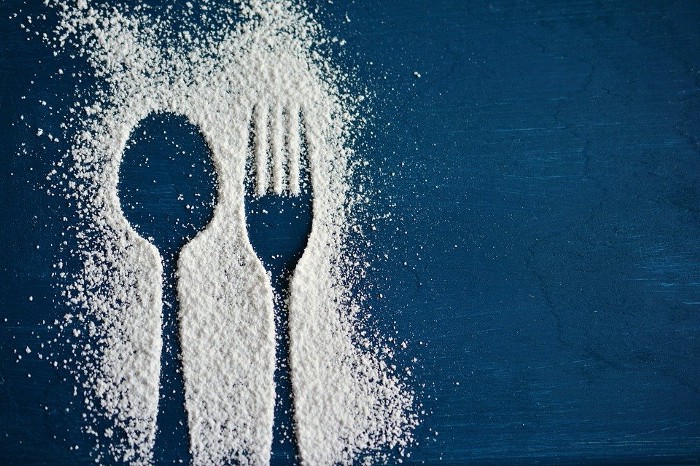It’s well known that sugar is addictive and consuming too much of it can be a risk factor for a variety of health problems including obesity, diabetes, and cardiovascular disease. As a result, many food companies use non-nutritive sweeteners, also known as low calorie or artificial sweeteners, to replace sugar in their products. Artificial sweeteners supposedly make low calorie foods taste better, but are low calorie sweeteners really “healthier” than sugar, and what effect do they have on our bodies?
Non-nutritive sweeteners must be approved for use by the FDA in the United States, so they are supposedly safe for consumption. The reason they are so low in calories is that they are typically about 200 to 700 times sweeter than table sugar, so a significantly smaller amount of them needs to be used to achieve the same sweetness level as sugar in food. The most common artificial sweeteners include saccharin, aspartame, acesulfame potassium, and sucralose — all of which were created in laboratories. Another common non-nutritive sweetener, stevia, comes from the Stevia rebaudiana plant. Some of these sweeteners have caused health scares in the past. For instance, saccharin was linked to bladder cancer in rats used for research, but in human studies, it was found to be safe and noncarcinogenic. Another issue occurred with aspartame, because it contains phenylalanine, which some people with a rare hereditary disease are unable to metabolize. Although these are small incidents, it’s important that people are aware that artificial sweeteners may still have adverse health effects that haven’t been proven yet.
Artificial sweeteners are typically about 200 to 700 times sweeter than table sugar, so a significantly smaller amount of them needs to be used to achieve the same sweetness level as sugar in food.
In a study performed at the University of Sydney, researchers assessed how sucralose, acesulfame potassium, and saccharin affect the growth of E. coli, a bacteria found in the intestines of humans and other animals. The researchers found that all three sweeteners inhibited the growth of E. coli and also reduced the size of E. coli colonies in petri dishes. This led the researchers to hypothesize that these artificial sweeteners may have similar effects on other intestinal bacteria. Because intestinal bacteria helps with digestion as well as food breakdown and absorption, this inhibition in the body could lead to digestive issues.
The second part of the study examined the effects of sucralose on the gut bacteria of mice. After 12 weeks of feeding the mice food with sucralose or food with water, the researchers found that the food with sucralose increased the amount of bacterium Firmicutes and decreased the amount of Bacteroidetes. There are thousands of bacteria in the intestines, but Firmicutes and Bacteroidetes are two of the most prevalent in humans. Scientists have noticed that in obese people, Firmicutes exist in high amounts while Bacteroidetes exist in lower amounts, which is the same trend the researchers found in the mouse experiment. Further research needs to be performed before a more justified link can be made between artificial sweeteners and obesity; however it’s clear that artificial sweeteners change the makeup of bacteria in our gut.
Artificial sweeteners change the makeup of bacteria in our gut.
A lot still remains unknown about artificial sweeteners and their effects on the human body because it is difficult to test effectively with so many variables to control and ethics to consider. It is, however, definite that they affect the bacterial makeup in the human body. Sweet foods also generally increase appetite, so artificial sweeteners may increase one’s appetite like sugar does. There isn’t enough information yet to conclude whether artificial sweeteners are “healthier” than sugar, but like any food, moderation is key.
PLoS One (2018). DOI: 10.1371/journal.pone.0199080
Image source: Pixabay.






